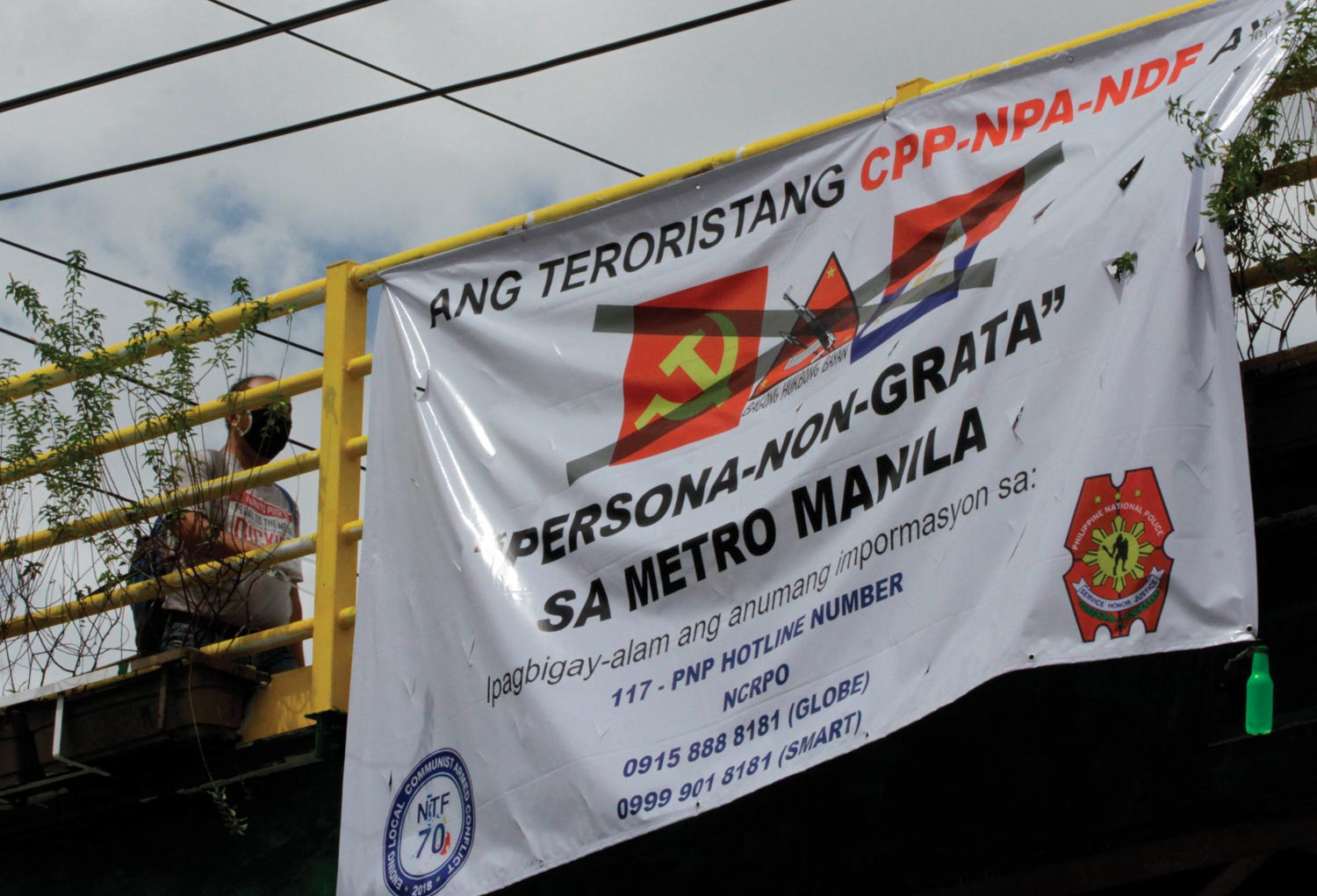
The Philippine Department of Justice (DOJ) over the weekend published the implementing rules and regulations (IRR) of the Anti-Terrorism Act of 2020 (ATA) on its website.
DOJ undersecretary Adrian Sugay confirmed that the IRR was uploaded on Friday, Oct. 16, adding that the IRR will also be published in two newspapers of general circulation.
The anti-terror law, signed by President Rodrigo Duterte on July 3, took effect on July 18.
According to the law’s IRR, there is terrorism when engagement in any of the following acts, regardless of the stage of execution, occurs:
• Acts intended to cause death or serious bodily injury to any person, or to endanger a person’s life;
• Acts intended to cause extensive damage or destruction to a government or public facility, public place, or private property;
• Acts intended to cause extensive interference with, damage, or destruction to critical infrastructure;
• Developing, manufacturing, possessing, acquiring, transporting, supplying, or using weapons or explosives intended to cause a disproportionate amount of damage, or of biological, nuclear, radiological, or chemical weapons; or
• Releasing of dangerous substances, or causing fire, floods, or explosions.
There is also terrorism when the purpose of any of the engagements listed above, in its nature and context, is to intimidate the general public, create an atmosphere or spread a message of fear, provoke or influence by intimidation the government or any internation organization, seriously destabilize or destroy the fundamental political; economic; or social structures of the country; or create a public emergency.
The IRR stated that activities such as advocacy, protest, dissent, stoppage of work, industrial or mass action, artistic and cultural expressions, or other similar exercises of civil and political rights are not considered as terrorism when not intended to cause death or serious physical harm to anybody, to endanger a person’s life, or to create serious risk to public safety.
“The burden of proving such intent lies with the prosecution arm of the government,” the IRR said.
“Any person found guilty of committing terrorism as defined in Section 4 of the Act shall suffer the penalty of life imprisonment without benefit of parole and the benefits of Republic Act No. 10592 (the Expanded Good Conduct Time Allowance Law),” it added.
Sugay, the designated spokesperson of the Anti-Terrorism Council (ATC), said in crafting the IRR, they “cannot go beyond what the law provides.”
“We cannot take out anything. What we did was just break down the provision of the law in its elements to make sure it is properly understood by law enforcement, prosecutors and judges. That’s really all that we can do,” he added.
The anti-terror law has been questioned of its constitutionality by at least 37 petitions filed before the Supreme Court by various groups including lawyers, lawmakers and human rights advocates.




